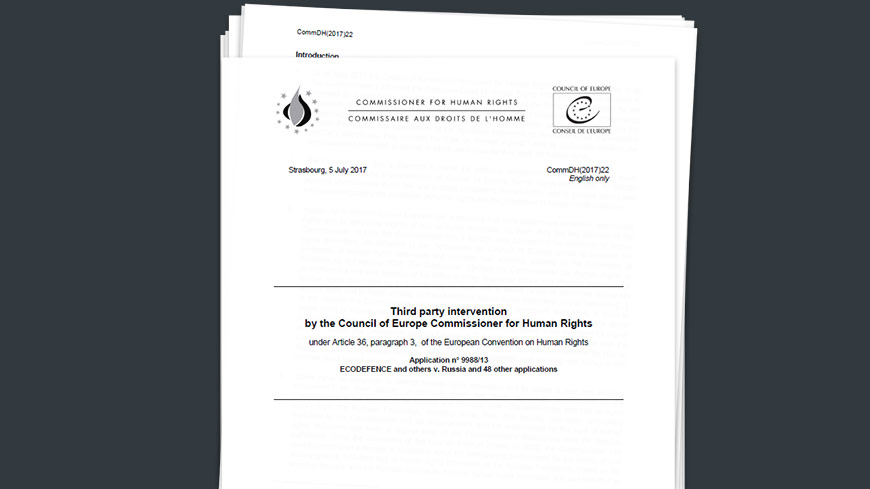“The Russian Federation’s legislative framework on non-commercial organisations is incompatible with international and European human rights standards”, writes the Council of Europe Commissioner for Human Rights, Nils Muižnieks, in his observations submitted to the European Court of Human Rights and published today on a group of cases which challenge the so-called “Law on Foreign Agents”.
“The application of this law has had a chilling effect on the work of civil society organisations in the Russian Federation and has considerably interfered with the rights to freedom of association and freedom of expression of many non-commercial organisations and human rights defenders, sometimes with severe consequences. Apart from the difficulties in securing funding, such groups and the persons working in them have been subjected to ostracism, harassment, and even physical attacks.”
The Commissioner agrees with representatives of human rights structures of the Russian Federation that the application of the Law on Foreign Agents continues to reveal a fundamental uncertainty surrounding the term of “political activity” as interpreted by the executive, prosecutorial and judicial branches. “The activities that the law qualifies as “political” represent in reality some of the most commonly-practiced, basic and natural methods for civil society institutions to perform their work and constitute important elements of the democratic fabric of a society. The application of this law against civil society groups advocating for changes in law and practice or scrutinising the human rights compliance of public authorities’ actions, greatly undermines their role as a public watchdog, which is necessary in a democratic society.”
Commissioner Muižnieks concludes by underscoring that, according to international human rights standards, non-commercial organisations “should be free to solicit and receive funding not only from public bodies in their own state but also from institutional or individual donors, another state or multilateral agencies, subject only to the laws on customs, foreign exchange and money-laundering, as well as those on elections and funding of political parties. Reporting requirements should be set up on an equal and non-biased basis regardless of the sources of income.”
Third party interventions represent an additional tool at the Commissioner’s disposal to help promote and protect human rights. The European Convention on Human Rights foresees these interventions which are based on the Commissioner’s country and thematic work. They do not include any comments on the facts or merits of the case, but provide objective and impartial third-party information to the Court on aspects of concern to the Commissioner.



